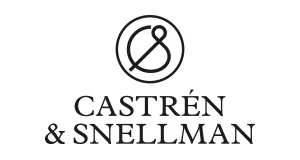A new guidance note by the Commission helps operators in the European Union to identify sanctions circumvention and assess the related risks. The note presents an overview of aspects to consider when carrying out due diligence.
In response to Russia's war of aggression against Ukraine, the European Union has imposed vast restrictive measures against Russia and Belarus. Given the scale of the sanctions, Russia has tried to circumvent these measures, for example by using complex financial schemes or falsifying the nature of origin of the goods traded. There is therefore an increased risk that EU operators unknowingly facilitate prohibited activities involving Russia which possibly violate EU regulations. EU operators have a duty to comply with sanctions regulations and to carry out due diligence when trading with third countries in order to reduce the risk of sanctions circumvention. It is prohibited to knowingly and intentionally participate in activities which have the effect or object of circumventing prohibitions laid down in Council Regulation (EU) No 833/2014 and Council Regulation (EU) No 269/2014.
IDENTIFYING SANCTIONS CIRCUMVENTION
In September, the European Commission published a new guidance note for EU operators to help them identify and assess possible risks of sanctions circumvention. The guidance is intended as a practical guide, not an exhaustive document, and it aims to provide main points of consideration for enhanced due diligence. It currently focuses on export-related sanctions, but the recommended due diligence measures will be updated as new ways of circumventing sanctions emerge. The guidance emphasises that risk assessments should be updated regularly, and personnel should be trained on the issues related to sanctions.
The guidance contains a list of good practices which seek to ensure that business partners are identified and verified, abnormalities in the flows of money and routes of goods are noticed, and attention is paid to the nature of goods. In particular, threats and vulnerabilities arise for EU operators who manufacture or transport, semiconductor devices, for example, or other high-priority battlefield items. The Commission has published lists of sanctioned high-priority battlefield items and economically critical goods to support EU operators in their due diligence and effective compliance with EU sanctions regime.
GOOD PRACTICES AND RED FLAGS
As for the implementation of enhanced due diligence, the guidance contains some good practices to address the most common typologies of sanctions circumvention. Particular attention should be given to the possibility of diversion to or from Russia via third countries. When exporting goods subject to restrictions, all EU operators should 1) include contractual clauses with their third-country business partners prohibiting re-exports of the items to Russia and Belarus and 2) possibly include ex post verifications. If sanctioned items are exported further due to insufficient due diligence, it may constitute a violation of EU sanctions law. Additional vigilance is also required when transactions rely on correspondent accounts.
The guidance also contains a list of circumvention red flags related to business partners and customers. Possible signs of circumvention are, for example, indirect transactions, new customers in 'circumvention hubs' and complex corporate structures. If any of the red flags come up in the course of general due diligence, a deeper screening is required.
The guidance can be read in full here.
The content of this article is intended to provide a general guide to the subject matter. Specialist advice should be sought about your specific circumstances.


